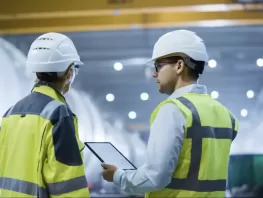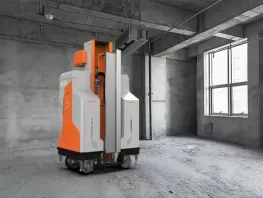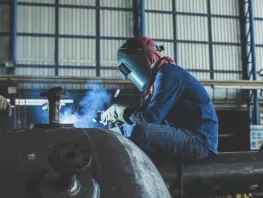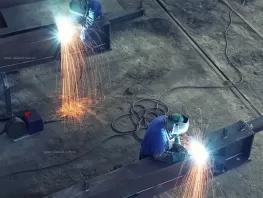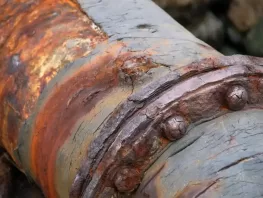
Industrial vs. Commercial Painting: Is There a Difference?
Posted Jan 02, 2025 by Dave Scaturro

While industrial and commercial painting may seem similar on the surface, they cater to very different needs and environments–and understanding these distinctions is key to ensuring the right approach for your project. In this blog, we’ll explore the differences between industrial and commercial painting, their applications, and how to choose the best solution.
What Is Industrial Painting?
Industrial painting focuses on durability and functionality. This type of painting is designed to protect structures and surfaces from harsh environments, corrosion, and chemical exposure. It often involves specialized coatings like epoxy, urethane, or fireproofing materials that enhance the longevity of industrial facilities.
- Key Characteristics:
Prioritizes protection over aesthetics.
Uses heavy-duty coatings to withstand extreme conditions.
- Typical Environments:
Factories, warehouses, bridges, and pipelines.
Learn more about industrial painting services here.
What Is Commercial Painting?
Commercial painting, by contrast, focuses on aesthetics and creating inviting environments. It’s typically used in customer-facing spaces where appearance and branding are important. This type of painting includes decorative finishes and vibrant color schemes to enhance the visual appeal of offices, retail spaces, and restaurants.
- Key Characteristics:
Emphasizes design and aesthetics.
Uses standard paints with attention to branding and color harmony.
- Typical Environments:
Offices, hotels, retail spaces, and restaurants.
Explore commercial painting solutions here.
Key Differences Between Industrial and Commercial Painting
- Purpose and Priorities:
Industrial: Protection, durability, and compliance with safety standards are paramount.
Commercial: Focuses on aesthetics, branding, and creating a pleasant environment.
- Materials and Coatings:
Industrial: Heavy-duty coatings resistant to wear, chemicals, and extreme temperatures.
Commercial: Standard paints and finishes with some durability for high-traffic areas.
- Techniques and Equipment:
Industrial: Requires specialized tools like spray rigs and sandblasting equipment for large-scale projects.
Commercial: Relies on traditional painting methods with attention to detail and precision.
- Environments:
Industrial: Factories, plants, pipelines, and infrastructure projects.
Commercial: Offices, retail stores, restaurants, and hotels.
Applications of Each Type of Painting
- Industrial Painting Applications:
Corrosion protection for metal structures.
Fireproofing in plants and factories.
Safety enhancements like marked floors and hazard zones.
- Commercial Painting Applications:
Custom finishes for branded spaces.
Maintaining an inviting atmosphere in customer-facing environments.
Updating interiors and exteriors to reflect modern design trends.
Choosing the Right Service for Your Needs
Selecting the right type of painting depends on your project’s purpose and environment. If durability and protection are your priorities, industrial painting is the way to go. For customer-facing spaces where aesthetics and branding are key, commercial painting is the better choice.
At Alpine Painting and Sandblasting, our team offers expert services tailored to your specific requirements. Whether you need industrial-grade coatings or decorative finishes, we ensure high-quality results that meet your needs.
Ready to transform your space? ContactAlpine Painting and Sandblasting for professional painting services that deliver exceptional results for both industrial and commercial projects.
